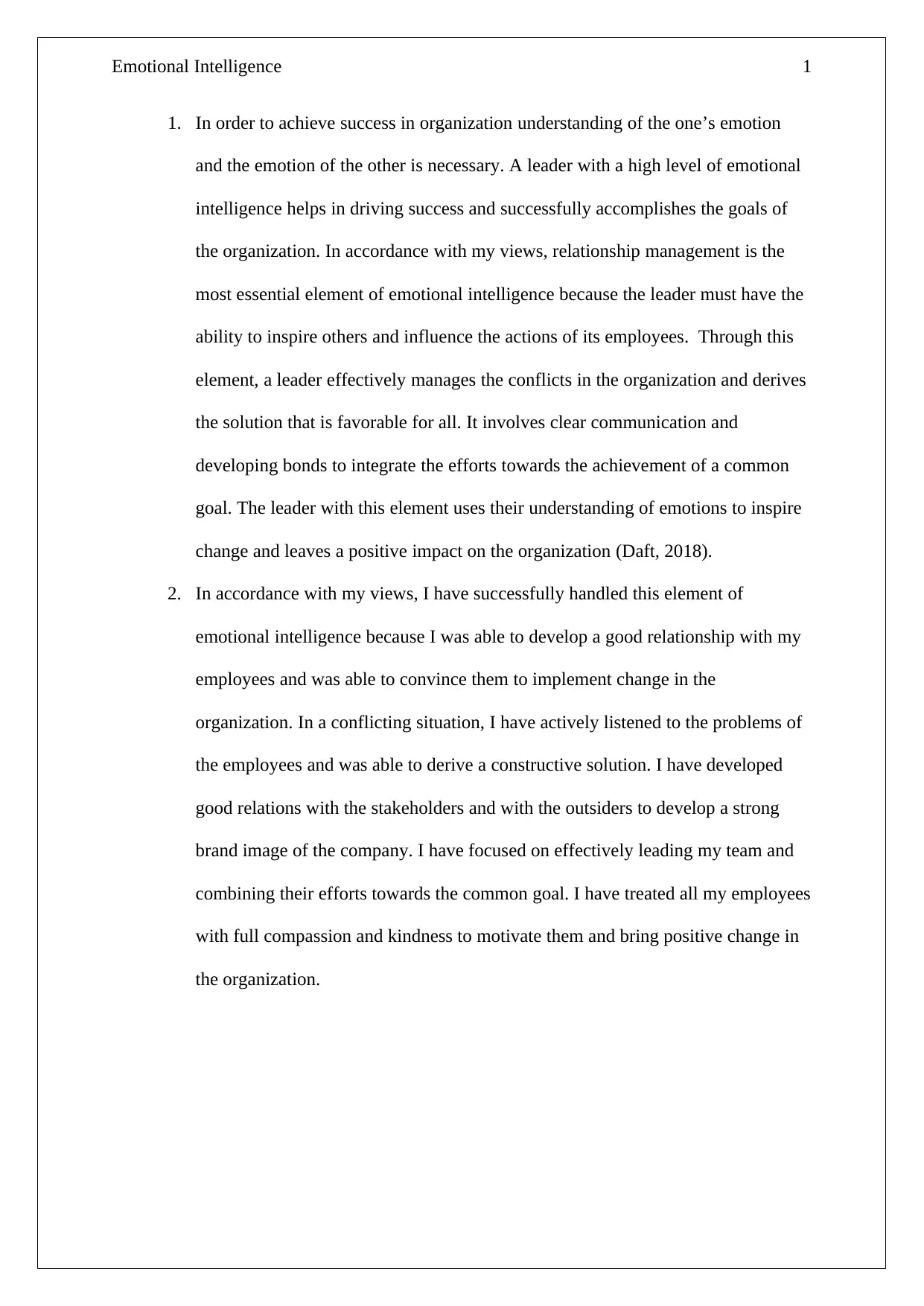Emotional Intelligence and Effective Leadership: A Critical Analysis
VerifiedAdded on 2022/12/29
|3
|310
|99
Discussion Board Post
AI Summary
This discussion post explores the crucial role of emotional intelligence in effective leadership, drawing from Chapter 5 of "The Leadership Experience." The student identifies relationship management as the most essential element, emphasizing its importance in inspiring, influencing, and managing conflicts within an organization. The post highlights the significance of clear communication, building strong bonds, and fostering a shared vision among team members. The student provides a personal reflection on how they have successfully applied relationship management skills, including building rapport with employees, facilitating constructive solutions, and developing strong relationships with stakeholders. The post underscores the importance of compassion and kindness in motivating employees and driving positive organizational change, aligning with the principles of emotional intelligence as a key driver of leadership success. The assignment demonstrates an understanding of the theoretical concepts of emotional intelligence and the practical application of these concepts in a leadership context, supported by the reference to Daft (2018).
1 out of 3









![[object Object]](/_next/static/media/star-bottom.7253800d.svg)